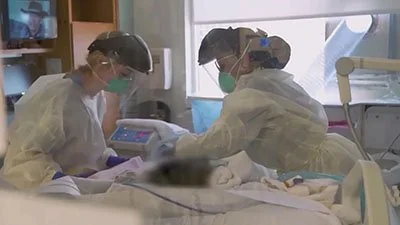
In Louisiana, the state Board of Regents estimated that there will be a deficit of around 6,000 registered nurses, accounting for nearly 40% of the anticipated demand by 2023. The state's nursing program admissions witnessed an 8% decline in 2020 compared to the previous year, according to data analyzed by the commission.
Earlier this year, Ochsner Health, the state's largest health system, grappled with over 800 unfilled nursing roles, constituting approximately 9% of its workforce. Similarly, both Franciscan Missionaries of Our Lady Health System and LCMC Health faced more than 500 vacant nursing positions each.
In response, Tulane University aimed to increase the pipeline of new nurses by initiating a nursing program in fall 2024, intending to admit over 200 students annually.
Dr. Lee Hamm, Tulane's Senior Vice President and Dean of the School of Medicine, highlighted the pressing need for nurses, especially after the toll of the pandemic. The program will fast-track a bachelor of science degree in nursing, compressing the curriculum into a continuous 16-month period. Brenda Douglas, the program's dean of nursing, specified that prospective students should have completed at least 60 credit hours of undergraduate coursework, including prerequisite courses, or already have an associate's or bachelor's degree.
This initiative aims to draw students from across the nation to support the state Board of Regents' objective of doubling the city's nursing workforce by 2030, a move aimed at improving regional health outcomes.
Douglas emphasized that in order to improve the city and the region's health, you have to recognize what the shortfalls are. And one of the shortfalls is that they need more nurses at the bedside.
Tulane is among several institutions addressing the shortage by introducing new programs. In a 100-mile radius, there are at least 17 other nursing schools, many unveiling new programs and buildings to attract students.
A partnership between Ochsner and the University of Louisiana at Lafayette will kick off an accelerated nursing program, expecting around 70 students in May 2024. Delgado Community College and Ochsner Health recently completed a $44 million building to accommodate a new nursing and allied health school, capable of training 1,500 students.
LSU Health New Orleans announced a nurse midwives program in October and secured over $1 million in federal funding to attract diverse students of the nursing profession. Loyola University New Orleans launched a 17-month nursing program earlier this year.
According to Douglas, Tulane's program has generated significant interest. Within days of announcing details on December 15, over 100 inquiries flooded in.
Scheduled to commence in fall 2024, Tulane's program will initially operate from the Murphy Building at Tulane University School of Medicine before relocating to the renovated Tulane Medical Center building on Tulane Avenue, which is part of the city's planned downtown biomedical district.
Douglas said that Tulane's nursing program will fall under the School of Medicine, a somewhat unique placement that sets it apart from other nursing schools. In simulations with high-tech, responsive mannequins or actors pretending to be patients, nursing students will learn alongside medical students.
The program will blend online coursework with substantial clinical exposure at local hospitals. Tulane is exploring partnerships with hospitals to provide financial aid to graduating nurses in exchange for post-graduation work commitments, although specifics are yet to be finalized, Douglas mentioned.
